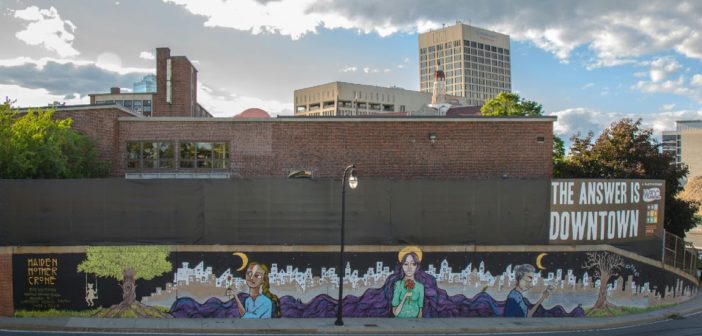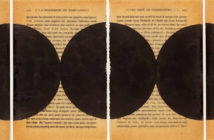Each day that you and I choose to venture outside of our dwellings, we navigate streets, sidewalks, and other public infrastructure made not by us, but for us by other people who, assumedly, had our best interest in mind when creating them.
How many times have I thought, “That idiot, I bet they don’t even walk!” about a depersonalized traffic engineer as I wait to cross four lanes of deadly traffic?
Design may be the most straightforward example of a creator-user relationship, and perhaps the easiest to critique. It works, or it doesn’t. For me. (Note, that highway works perfectly for the drivers speeding along.)
Could it be just as easy to evaluate socially-engaged artwork if we look at it through the same lens: who it is for? With this in mind, and picking up the thread from the conversation in Part 1 of Art in Service with Maggie Cavallo and Leah Triplett Harrington, I asked five artists, curators, and activists the simple but complicated question, “Who is your work for?” and asked them to respond via a shared online document and engage in conversation.
Che Anderson, Jennie Carlise, William Chambers, Elisa Hamilton, and Lori Lobenstine gave answers as genuine, complex, humorous and generous as their work. From dedicated practices that give voice to others, to works that call to action, the following conversations and statements debunk any hopes I had of trying to simplify the practices of artists working with the public.
Thus I will continue walking the streets trying as best I can to see the point of view of the automobile driver and the pedestrian. In other words, to leave open room in my critique to accept and embody as many audiences as possible and to believe that everyone, from the artist to the engineer, has their audience’s best intentions in mind. Even if I have to wait five minutes to cross the street.---Kate Gilbert
Who is your practice for? ...You all come at your practice of art-making, curating, and instigating change from different angles, and we’d love to know who you do your work for – is it for a specific audience, the general public, or yourself? Not sure? Don't care? You can answer the question in any way you choose. (And feel free to choose which aspect of your practice you wish to speak about; be as specific or general as you wish.)
Read responses from Che Anderson, Jennie Carlise, William Chambers, Elisa Hamilton, and Lori Lobenstine on Now + There.



